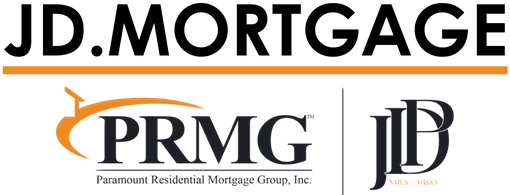What Are Your Mortgage Rates? Shop Smart
What Are Your Mortgage Rates? Shop Smart
It’s normal to ask a lender, “What are your mortgage rates?” or “What’s your rate?” Your rate matters, but a single number without context can be misleading. The best choice looks at your goals, budget, and the total cost to get that rate. See loan options.
Explore Loan Options (Nov 22nd, 2025)Why People Ask About Rates
Many people think each lender sets completely different rates. In truth, lenders don’t create rates—markets do. A lender shows a range of rates based on your details, and that range can change every day. A better starting point is to review programs, costs, and timing together. See our process.
What Really Sets Your Rate
Your pricing comes from several pieces working together:
- Credit score — Higher scores can improve pricing.
- Loan type — FHA, VA, USDA, Conventional, Jumbo, and Non-QM each price differently.
- Loan term — 15-year vs 30-year changes both payment and rate.
- Loan-to-Value — How much you put down affects risk and price.
- Debt-to-Income — The share of income that goes to monthly debts.
- Property & use — Single-family vs condo; primary, second home, or investment.
- Market conditions — Rates move with the economy and can change more than once a day.
Because these vary by person and property, the “best” rate for one borrower may not be the best fit for another. Estimate a payment.
Explore Loan Options (Nov 22nd, 2025)Why Shopping Around Matters (and How to Do It Right)
You should shop lenders—we encourage it. But shopping should be more than calling three places and writing down three numbers. The smart way is a short, engaged talk where you get clear math, simple words, and time for questions. Meet our team.
To get apples-to-apples quotes, have these ready:
- Estimated credit scores — A rough range is fine.
- Estimated purchase price — Helps size the loan and payment.
- Anticipated down payment — 3%, 5%, 10%, 20%, etc. This affects rate options, loan programs, and any mortgage insurance.
- Property type — Single-family, condo, manufactured, or multi-unit.
- How you’ll use the home — Primary residence, second home, or investment property.
Sharing the same details with each lender helps you get a true side-by-side comparison. Request a transparent comparison.
Explore Loan Options (Nov 22nd, 2025)What to Watch Out For
Compare the whole picture, not just a headline number:
- Very low quotes without costs — A rate can look great until you see it needs expensive discount points or assumes “perfect” borrower settings.
- “Unlocked” disclosures with missing points — Some buyers see paperwork with a low rate but no point cost listed. Later, when timing is tight, the real costs appear. You may have to pay unexpected points or accept a higher rate.
- Advertised rates in tiny print — Public rates often assume excellent credit, very low LTV, ideal DTI, and prepaid points that don’t fit many buyers.
- Sales slogans — “Best rates and fees” sounds nice. A better sign is clear explanations, written comparisons, and quick, honest updates.
Ask for a written quote that shows rate, itemized costs, and simple break-even math based on your numbers. Connect with us.
Down Payment: Is More Always Better?
Not always. A bigger down payment can lower your rate and may remove mortgage insurance. But sometimes keeping cash helps more. For example, paying down higher-interest debts can improve your monthly budget more than a small drop in mortgage payment. In other cases, keeping cash invested (based on your risk tolerance and time frame) may fit better if you don’t plan to keep the mortgage long. Ask for scenarios both ways. Explore options by down payment.
Explore Loan Options (Nov 22nd, 2025)Break-Even Made Simple (for Discount Points)
Paying “points” means paying extra upfront to lower your rate. The break-even point is when your monthly savings add up to the cost you paid. Example: pay $4,000 in points; save $100 per month → break-even at month 40. If you’ll keep the loan longer than that, points may make sense; if not, they may not. Ask for the math in writing. Learn about points and refinancing.
Better Questions to Ask a Lender
- Which loan programs do I qualify for today, and can you compare them side by side?
- What are your lender fees, and what third-party costs should I expect?
- How will you keep me updated during the process?
- How much experience do you have with loans like mine or in my area?
- Is buying discount points worth it for me, and what’s the break-even timeline?
- If I put less down and pay off other debts, how does that change my monthly budget and total cost?
These questions help you compare total value, not just a teaser rate. See our step-by-step process.
Quick Answers
- Do advertised rates apply to me?
- Often not. They usually assume excellent credit, low LTV, ideal DTI, and prepaid points. Ask for a quote tailored to your exact scenario. Get a tailored review.
- How should I shop around?
- Share the same info with each lender and ask for a written comparison showing rate, itemized costs, and any point break-even. Request a comparison.
- Is a bigger down payment always better?
- Not always. Sometimes keeping cash to pay down other debts—or to stay liquid—fits your plan better. Ask to see both paths. Compare conventional options.
Why the Right Lender Matters
Your rate matters, but it’s only one part of the decision. The right lender explains choices, shows the math, avoids last-minute surprises, and aligns your loan with your goals. That’s how you choose with confidence. About JD.Mortgage.
Explore Loan Options (Nov 22nd, 2025)Your Next Step
Shop lenders the smart way—look beyond a one-line rate. We’ll compare loan options side by side, show total costs and any break-even math, and tailor the plan to your goals and timeline. Connect with JD.Mortgage.
Programs we offer include: VA, FHA, USDA, Down Payment Assistance (DPA), Conventional, Jumbo, Non-QM (DSCR, Bank Statement, ITIN and more), HELOCs, Closed-End Seconds, Reverse, and Construction Loans. Explore all loan options.
Learn More About VA Loans (Nov 22nd, 2025)

Comments open